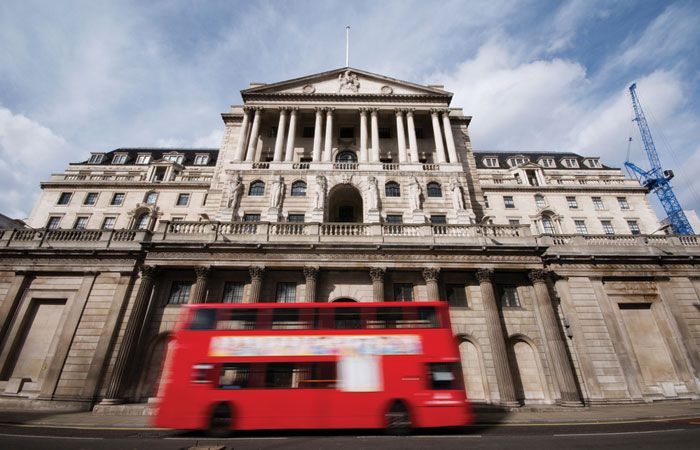The Bank of England should weigh in with a half-point rate cut to combat the “crazy situation” created by Donald Trump’s trade tariffs, according to former deputy governor Charlie Bean.
The former policymaker argues that strong measures are needed to deal with the fallout from the US President’s tariff war, which has knocked trillions of pounds off global stock markets, and undermined business and consumer confidence.
Speaking to the Guardian, Bean said: “It is not just the tariffs that are the problem, it is the huge uncertainty these actions have created, delaying buying and investment decision by businesses and consumers.”
The chances of a quarter-point rate cut, from 4.5%, at the Bank’s Policy Committee’s next meeting on 8 May, lifted to 95% this morning.
This is up from around 50% before ‘Liberation Day’, on 2 April, when Trump laid out his plans to combat US trade imbalances.
Traders are also factoring in that policymakers will be forced to make two further base rate cuts this year, by August and then by December.
This would take the base rate to 3.75% by the end of the year, or 3.5%, if the committee adopts a half-point cut next month, as Bean advises. Bean worked for the Bank for 14 years from 2000.
However, another former rate setter, David Blanchflower, went further saying Threadneedle Street should hold an emergency session before the next scheduled May meeting to consider a deep reduction in the cost of borrowing. He was on the MPC for three years from 2006.
Blanchflower said: “You need to really care about consumer confidence because when it falls you are staring at a recession.”
America has imposed a minimum 10% tariff on imports from all countries that trade with the US.
The UK faces a 10% tariff, while the EU has a 20% tariff and China faces 104% of extra import taxes if it goes ahead with retaliatory charges.
The MPC has surprised with larger-than-expected rate moves, but this does not happen often.
Its most notable rate change in recent years came in November 2008, when policymakers cut rates by 150 basis points as the global financial crisis unfolded.
Deutsche Bank says the MPC would need to see “a sharp drop-off in survey activity indicators” from its agents, and other data such as PMI and CBI reports.
The German bank says rate-setters would also need to see signs of “excess tightening in financial or credit conditions” and “more evidence of a cooling in labour markets” in the run-up to its May decision.
Deutsche Bank senior economist Sanjay Raja pointed out: “While we remain attuned to the risk of larger rate cuts, given the uncertainty surrounding the global economy and the prospect of more tightening in credit and financial conditions, we think the bar for ‘forceful’ rate cuts is still high — even if we are likely to see one or two votes for a 50bps rate cut in May.”
However, the investment bank is above consensus estimates, with a forecast of four more rate cuts before the end of the year.
Earlier today, Chancellor Rachel Reeves told parliament: “This morning I spoke to the Governor of the Bank of England [Andrew Bailey], who has confirmed that markets are functioning effectively and that our banking system is resilient.”
Publisher: Source link










